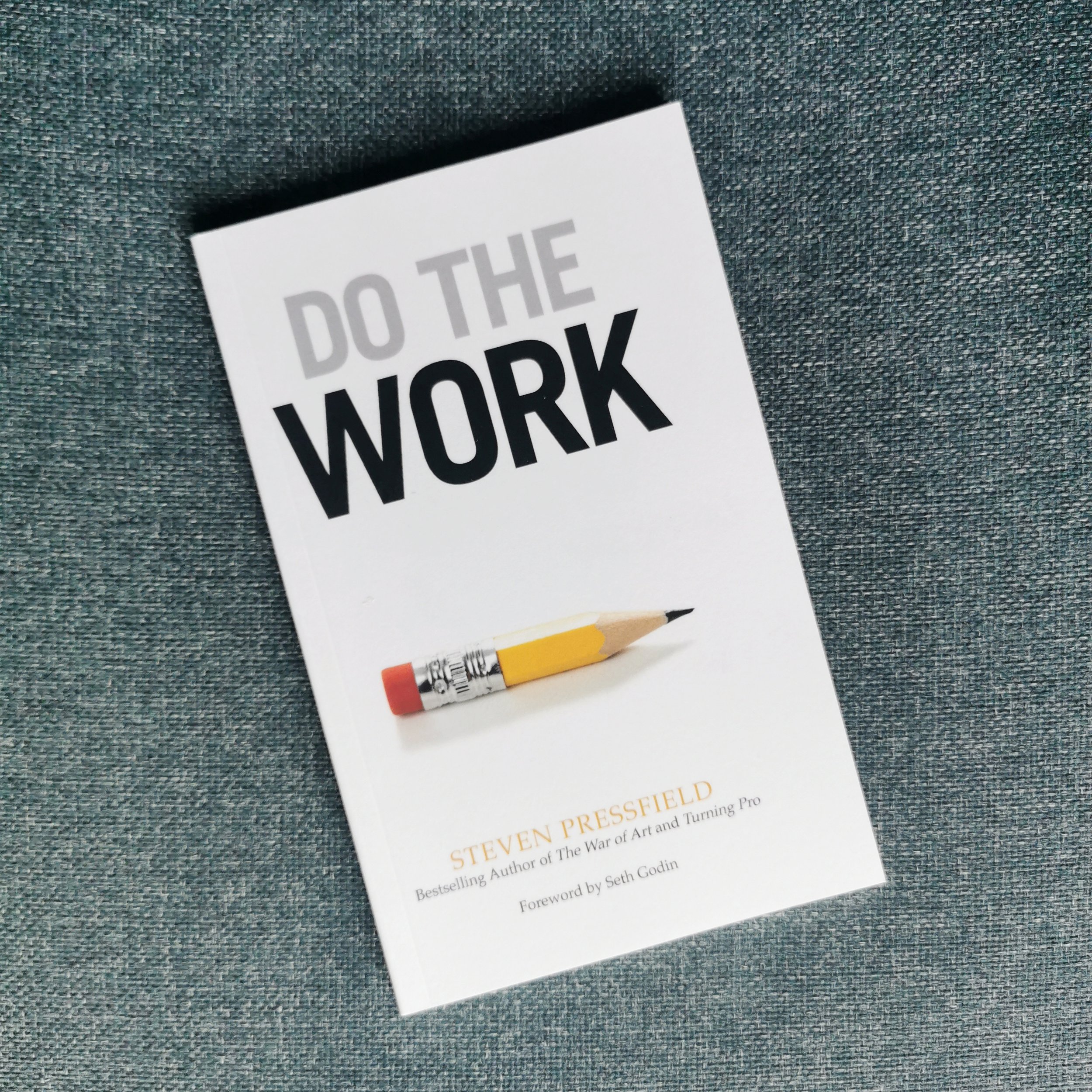Do the Work - Steven Pressfield
3-Sentence Summary:
At the start of any creative project (a book, business, painting, play, podcast etc.), the focus should be on starting before you’re ready, outlining the project in a 3-act structure, staying stupid and stubborn and having blind faith to get momentum going, through the initial resistance.
Once you’ve got going, the focus should be on “covering the canvas” (getting the first rough draft done), and refining this over time, until you hit the inevitable “wall” at which point you must identify the problem, and work the problem, until it’s done.
Once you’re done, the next part is to ship, get your work out there, and expose yourself to that which you fear - failure and success - after which you must start your next project, again, before you’re ready.
Notes:
In any creative task, we have enemies and allies.
Your enemies include resistance, rational thought, and friends & family.
Your allies include staying stupid, being stubborn, blind faith, passion, assistance, and friends & family.
When starting your creative task, the issue isn't lack of information or the difficulty of the task, the resources you have, or the position you find yourself in. It's overcoming the resistance of starting.
In order to account for this, remember the importance of starting before you're ready.
Give yourself a research diet of 3 books so you can't procrastinate in research. Also, only do research outside of your core working hours.
Make your project fit an A4 page, using a 3-act structure, starting with the finish in mind, if that's easier.
Once you've overcome the hurdle of starting, use the A4 paper and 3-act structure, and fill in the gaps, creating 7-8 key highs/lows.
Then, "cover the canvas", meaning getting your first full rough draft done.
This is a time for getting everything down on paper, suspending all judgement in the moment, leaving in the ridiculous and silly stuff.
Once you've built that out, make sure to re-ask yourself "What this is about?", and "What's missing?" - then fill in the gaps.
Momentum has now been built, but inevitably, you'll hit "the wall", or the "belly of the beast". This could be in the form of running out of money, getting demotivated, people hating your draft, listening to your own doubt etc.
Once you've hit the wall, you must return to the allies of stupidity, stubbornness, and blind faith.
Now, you must also remember that the problem is not a reflection of you as a person.
The problem is the problem. the problem isn't some spiritual, ineffable life issue. It's something mechanical and practical within the project. Your job at this point is to identify the problem, and work the problem! This is usually in the 3 act structure from the beginning.
This is the re-writing element in the example of writing.
Once you're done, now comes the hardest part - Shipping.
This is hard because it exposes you to criticism and failure.
But more than that, there is the fear of success, and the discomfort of who'll you become.
However, once you've overcome that and shipped, not shipping will never beat you again. There'll still be resistance to it, but it won't beat you.
You'll have joined an invisible fraternity of people in society who have created something from nothing and put it out there.
Then, once you've shipped, it's time to start the next project, before you're ready.
If you enjoyed this summary, you’ll probably enjoy the full book. Get it here: LINK TO BOOK (AMAZON)
Or get it for free on audiobook when you sign up for an Audible account: LINK TO AUDIOBOOK (AMAZON)
(This website uses amazon referral links as part of the Amazon Associates program.)
